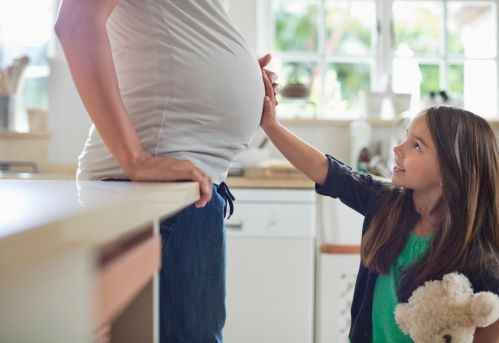Calling Pregnant Women 'Expectant Mothers' Offends Transgender People, British Medical Says

If you’ve referred to pregnant women as “expectant mothers,” you might try to reconsider, for it can be considered offensive to transgender people, the British Medical Association (BMA) said.
Instead, people should call pregnant women "pregnant people" so that it won’t upset intersex and transgender men, the union said.
The advice, which came in a 14-page leaflet, titled, “A Guide to Effective Communication: Inclusive Language in the Workplace” also suggested that “the elderly” should be referred to as “older people,” “disabled lifts” as “accessible lifts” and someone who is "biologically male or female" should be referred to "assigned male or female.”
When it comes to women’s pregnancy, it stated: “Gender inequality is reflected in traditional ideas about the roles of women and men. Though they have shifted over time, the assumptions and stereotypes that underpin those ideas are often deeply rooted.
“A large majority of people that have been pregnant or have given birth identify as women. We can include intersex men and transmen who may get pregnant by saying ‘pregnant people’ instead of ‘expectant mothers.’”
However, there are those who do not agree with the 14-page guidance, which was published online last year. Conservative MP Philip Davies called it "completely ridiculous."
"If you can’t call a pregnant woman an expectant mother, then what is the world coming to?" he told the Daily Mail.
Michael Nazir-Ali, the former Bishop of Rochester, told the Daily Mail he thinks it's "sad" that society is heading towards that direction.
"God has made us man and woman, and mothers relate to their children in different ways than fathers. This ruling will confuse people about the vital role of mothers in bringing up their children," he said.
The Roman Catholic Bishop of Portsmouth, the Right Reverend Philip Egan, said this newly idea could cause "great confusion and harm" to the public.
"It is Orwellian, isn’t it? Another example of people trying to control our thoughts and the way we speak," he said.
Despite those who seemed to have disagreed with the term, "expectant mothers," offending transgender people, a BMA spokesman said, overall, language is important and that the entire idea is for those to treat "each other with dignity and as equal members of an integrated community."
"This is a guide for BMA staff and representatives aimed at promoting an inclusive workplace at the BMA," he said. "It is not workplace guidance for doctors which is clear from the fact it does not refer to patients."
Heather Ashton, from the transgender support group TG Pals, also supported the idea.
"We know that biological females are the pregnant ones but trans people are parents too, and this massive step forward to prevent discrimination against them. The fact that the terminology is changing can only be a positive thing for everyone who wants to be a parent and has the right to be a parent," she said.
© Copyright IBTimes 2025. All rights reserved.






















